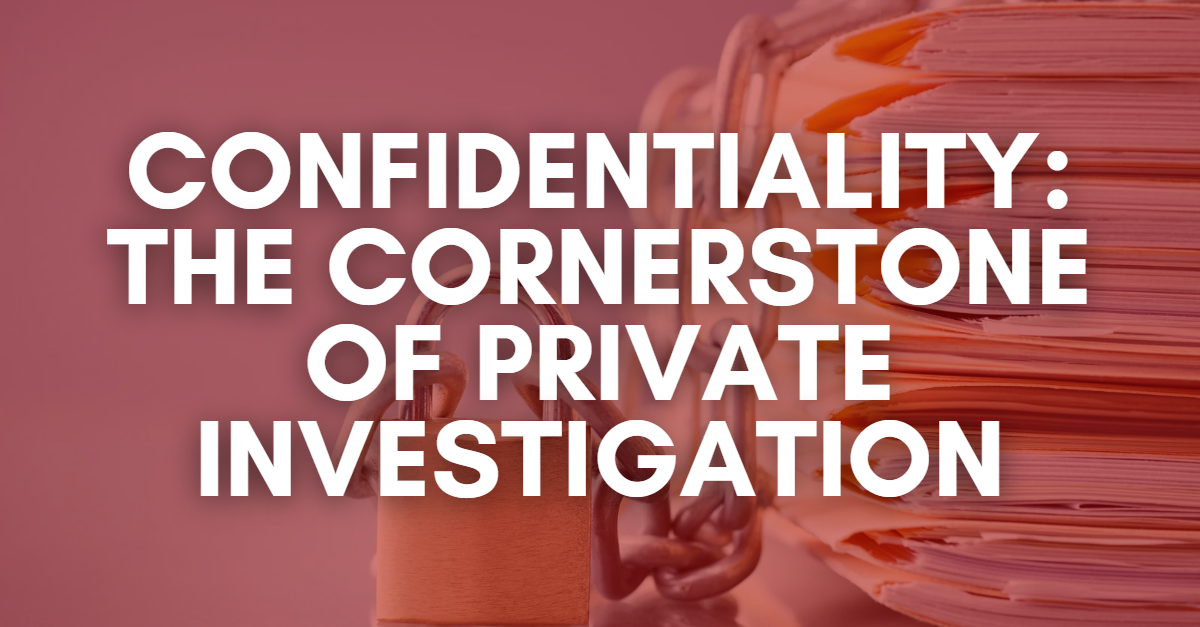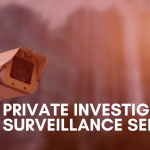Confidentiality is the bedrock of private investigation. As clients entrust private investigators with sensitive and often personal information, maintaining strict confidentiality is paramount. In this article, we will explore the importance of confidentiality in the private investigation sector. As well as, the ethical and legal obligations involved, and practical measures to safeguard confidential information.
Why is Confidentiality Essential in Private Investigation?
- Trust and Confidence: Confidentiality is crucial for establishing trust between private investigators and their clients. Clients need assurance that their personal matters will be handled discreetly and that their information won’t be shared without their consent.
- Protecting Privacy: Private investigators deal with highly sensitive information, such as financial records, personal backgrounds, or surveillance footage. Safeguarding this information is vital to protect individuals’ privacy and prevent unauthorized access or misuse.
- Preserving Reputations: Clients seek private investigation services for various reasons, including personal, legal, or business matters. A leak in private information can irreversibly damage reputations and have severe legal consequences for both the client and the investigator.
Legal and ethical obligations

First and foremost, private investigators should establish confidentiality agreements. This presents clear expectations for their clients. These agreements outline the scope of confidentiality and the limits of information disclosure.
PIs must also adhere to a professional code of ethics. Such as those established by industry associations; the set standards for maintaining confidentiality. Private investigators must commit to preserving client privacy and confidentiality in their professional conduct.
Practical measures for safeguarding confidentiality
Data is crucial to any business and PIs must protect it at all costs. Private investigators should adopt secure methods for storing and organizing confidential data. This includes using encrypted storage devices and employing password protection for digital files.
Furthermore, limited access is an important approach to follow when conducting an investigation. Access to confidential information should be restricted to authorized personnel only. Private investigators must implement measures to prevent unauthorized access, such as strong password policies and restricted physical access to offices or data storage facilities.
PIs must also show discretion in their communication with clients. When discussing case details or sharing information with clients, private investigators must exercise caution. They should ensure that conversations are held in secure environments, away from prying eyes and ears.

Last but not least, proper document disposal is an important process throughout any investigation with a client.
PIs should dispose of confidential documents securely to prevent unauthorized access or retrieval. Shredding paper documents and permanently deleting digital files are essential practices in maintaining confidentiality.
Best practices
Below are a few things PIs do to make sure they can best serve their clients and maintain confidentiality. It’s important for private investigators’ clients to be able to trust in their discretion and abilities.

- Ongoing Training: Private investigators should stay updated on the latest data protection regulations and best practices for maintaining confidentiality. Regular training helps reinforce the importance of confidentiality and ensures compliance with evolving legal requirements.
- Diligence in Case Documentation: Accurate and detailed case documentation is essential for private investigators. It ensures that information is organized, and accessible only to authorized personnel. These precautionary measures help avoid unintended disclosure.
- Communication with Clients: Establishing open communication channels with clients is vital to address any concerns related to confidentiality. Discussing expectations, explaining confidentiality measures, and addressing client queries help build trust and ensure mutual understanding.
Confidentiality is the cornerstone of private investigation, it provides clients with assurance that their personal information will be safe. Upholding confidentiality obligations requires a combination of legal compliance, ethical standards, and practical measures to safeguard confidential information. By following these principles, private investigators can maintain client trust, preserve privacy, and uphold the integrity of their profession.
Learn more about what we do and why you should hire an experienced private investigator. Simply click on this link to get in contact with one of our team members.










